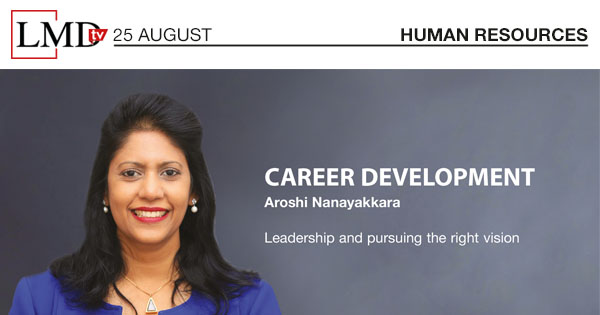LMD TV

“The Rotary Club consists of four avenues of service – community, youth, international and vocational,” stated the President of the Rotary Club of Colombo Aroshi Nanayakkara.
Among the club’s community services is the management of a cancer screening centre, which has been in operation for 17 years. Nanayakkara noted that “we’re trying to eliminate cervical cancer in Sri Lanka.”
The club also focusses on COVID-19, and the upliftment of farmers and rural communities, as well as initiatives that address the healthcare needs of residents in the North Central Province.
Meanwhile, she mentioned that “we seek to conduct youth leadership development programmes,” and added: “We’re also looking at how to upskill employees who are below executive levels.”
Furthermore, international service is about connecting with the 21 sister clubs across the globe. Nanayakkara noted: “At the moment, female members only make up 26 percent. This is not enough and we’re trying to raise the number.”
To this end, the girls’ club is a special programme that aims to welcome school going and other young females. “Through this [initiative], we plan to conduct leadership programmes and boost their confidence to move forward,” she stated.
However, Nanayakkara believes that not enough is being done to provide equal opportunities, noting that “53 percent of our population is women but Sri Lanka’s female participation in the labour force is one of the lowest in Asia – and certainly in the world.”
She pointed out that getting women engaged in the economy is vital to reach the country’s full potential.
“What are the constraints that keep women away?” she asked, and thereon revealed two factors that can help a woman’s career – viz. safe travel and childcare units in the workplace. “Some progressive industries in the country such as the apparel industry are already doing that but a national effort needs to come into place,” she remarked.
Nanayakkara elaborated on her leadership programmes, which aim to groom the next generation of leaders. One of the most important messages she tries to get across is to ensure that the youth appreciate the value of setting a vision, strategy and execution.
“Most of us float along with our career without thinking too much about the direction we are heading in,” she said, adding that “I would like – particularly for our youth – to start thinking about where you want to be in the future.”
She feels that a vision will set the path while strategising is the next step that must be taken in its pursuit.
Arming oneself with the right skills and qualifications is vital to thrive in the corporate world. To this end, she noted: “You have to constantly look at what is required from the workforce in the country and align yourself to that,” adding that possessing technical, financial and analytical skills makes an employee the crème da la crème in the corporate world today.
“On the soft skills side, research indicates that you can be excellent in your job performance; however, it is not only the delivery that is important but also how you do something and what you say while doing it,” asserted Nanayakkara, adding that “soft skills training and coaching teaches people how to present, influence others and make decisions in a progressive manner.”
Regarding her views on working from home (WFH), she asserted: “Employees can give attention to their families as well as work while cutting down travel time and costs, whereas organisations can save on office space, electricity and so on.”
Yet, there are disadvantages such as a lack of designated space in some households to work, which can hamper concentration. And Nanayakkara perceives that social needs are not being met effectively on virtual media.
Summing up her thoughts on how Sri Lanka needs to look forward to the future, she noted: “We need to fight the island mentality and complacency to take our organisations onto the global stage.”




